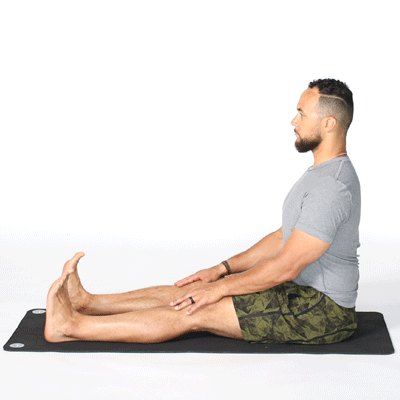
Hot yoga is a type of exercise that is performed in extreme heat. It causes heavy sweating. The name Hot Yoga suggests that the practitioner has to use more heat than normal. Some of these techniques are meant to simulate the conditions encountered by yoga practitioners from India. If you're wondering how to do a certain pose, try these tips. Continue reading to find out more about yoga hot. This article will discuss the various types of hot yoga as well as the benefits they provide.
Hot yoga builds strength and flexibility while flushing out toxins. This type exercise will increase your muscle strength and allow you to move more safely and with greater awareness. You'll get a better night sleep, clearer thoughts, and a more peaceful environment. Hot yoga is a great way to kick off your day. Here are the top three benefits of yoga hot. Let's go over each one.
First, you need to make sure to drink plenty of water before and after your yoga practice. Not only will it keep you hydrated, but it will also support your urinary system. Additionally, water is essential for many other body functions. Drink water two hours before class to avoid dehydration. Do not eat before a hot class of yoga. It is okay to eat small snacks prior to a hot yoga class but not two hours beforehand.

Yoga hot also offers greater flexibility. It is often more enjoyable and efficient than cold yoga, according to those who have tried it. But it is important that you understand the risks. Even though it is true hot yoga can cause injuries, it is still an effective workout. Keep in mind that your body and practice are the most important. Make sure that you practice safely. Remember to take deep, slow breaths. You cannot overdo it.
A good way to enjoy a hot yoga class is to have lots of water. You need to drink lots of water because hot classes can be very intense. Then, you'll be ready for the workout! No matter whether you are using your hands and feet for poses, your body requires oxygen in order to stay healthy. Also, practice makes you more energetic.
Although hot yoga can be difficult, it is also extremely beneficial to your health. Your body needs should be taken into consideration and your instructor should be listened to. It will tell you when you need to stop and hydrate. This type of exercise should be avoided if you are pregnant. The heat can have a negative impact on your pregnancy. As a result, you should consult a healthcare practitioner before beginning a yoga class. You should not take any medication without consulting your doctor.
Hot yoga can sound very appealing. However, it is vital to follow the instructions of your yoga teacher. Your body's temperature is also an important consideration. Hot yoga can be very relaxing for most people. However, some people may experience discomfort. It's best to keep the room temperature moderate to prevent a heat stroke. If the heat is too hot for you, it will make you feel uncomfortable.

Hot yoga can help you attain balance. The class will make you feel stronger and more flexible, but it's important that you take a rest afterwards. Hot yoga can make you dizzy and tired so you need to drink plenty of fluids to replenish your body. Then, incorporate the exercise into a daily routine. A different type of hot yoga is available if you feel uncomfortable about the heat.
The main benefit to yoga hot is that you burn calories. Although it may temporarily mask injuries, artificial heat can help increase flexibility, which allows you to do more challenging poses. The heat can also help you relax, which can be very important if your goal to lose weight is to get healthy. Hot yoga can help you lose weight. Hot yoga can help you feel less stressed and have more energy. It is also good for your overall health and can be a great exercise option.
FAQ
Do I have to exercise every single day?
No! Do at least 30 minutes of moderate intensity physical activity five days a week. That could mean walking fast enough for you to get slightly out of breath and biking hard enough for you to sweat.
What is butter good for?
Butter is one of the best sources of saturated fats. This fat is good for hair and skin health, as well as stronger bones.
Butter also contains vitamin K, which prevents bleeding from cuts and bruises. Vitamin K works with vitamin A to prevent bleeding.
Butter also contains minerals like calcium, phosphorous and potassium. These elements promote stronger bones and teeth.
Butter does have some drawbacks. Butter is high in cholesterol. A few studies have shown that too much cholesterol can increase the risk of developing coronary disease.
Also, butter is high in saturated fat, contributing to obesity and increased cholesterol levels.
If you have to have butter, spread it on bread instead of dipping it in soup or salad. Bread will absorb more oil than pasta or potatoes.
What is your favorite workout order?
It all depends on your goals. If you want to build muscle mass, then do heavy weights first. Then, move on to cardio. If you are looking to lose weight, then move on to strength training.
Start with cardio if you only want to lose fat. Next, add strength training.
If you are looking for muscle mass, cardio should be your last option. Cardio stimulates growth hormones and helps build muscle mass.
It is important to eat before going to work out. This will fuel your muscles, making them work harder. It makes you feel better when you exercise.
Statistics
- 10 pounds in a month is likely during a lean bulking phase, especially for beginners. (muscleandstrength.com)
- According to the American Heart Association, blood pressure should be checked at least once every two years, beginning at age 20. (my.clevelandclinic.org)
- The PRS enabled risk stratification for overall prostate cancer and lethal disease with a four-fold difference between men in the highest and lowest quartiles (HR, 4.32; 95% confidence interval [CI], 3.16-5.89). (pubmed.ncbi.nlm.nih.gov)
- Get free shipping and 25% off today. (healthline.com)
- Cardmembers earn 5% Back at Amazon.com with a Prime Credit Card. (amazon.com)
External Links
How To
What should I eat before going to the gym?
Losing weight requires you to consume fewer calories than what you burn in exercise. You must also eat all of your nutrients.
This includes protein and carbohydrates as well as fats, vitamins, and minerals.
The best way to do this is by eating smaller meals throughout the day rather than three large ones.
You might perform less well if you're too hungry while working out.
Water is better than energy drinks that contain sugar and caffeine. This will help you stay hydrated as well as energized.
Be sure to eat enough fluids. Over-consuming water could cause your body to lose its electrolytes.
Electrolytes are essential for the body's proper functioning.
You can drink sports drinks if you don’t have access water. They can be rich in minerals like sodium, potassium or calcium.
This help replenishes lost electrolytes. These won't, however, replace the sweat you lose from exercising.
If you're worried about losing too much salt during exercise, you could take a multivitamin pill.
These include extra vitaminB6, which regulates your body's sodium level.
Supplements are not recommended if you don’t know the amount of salt in your food or beverages.
They aren't regulated by the Food and Drug Administration (FDA).
Sports drinks, for example, can have higher sodium levels than others.
Some sports drinks may contain artificial sweeteners or other preservatives. These ingredients could cause digestive problems.
You could use sea salt if you are concerned about taking too much salt.
It contains less chemicals than table sodium.
Sea salt also has low levels of iodine which is another mineral that is essential for healthy thyroid function.